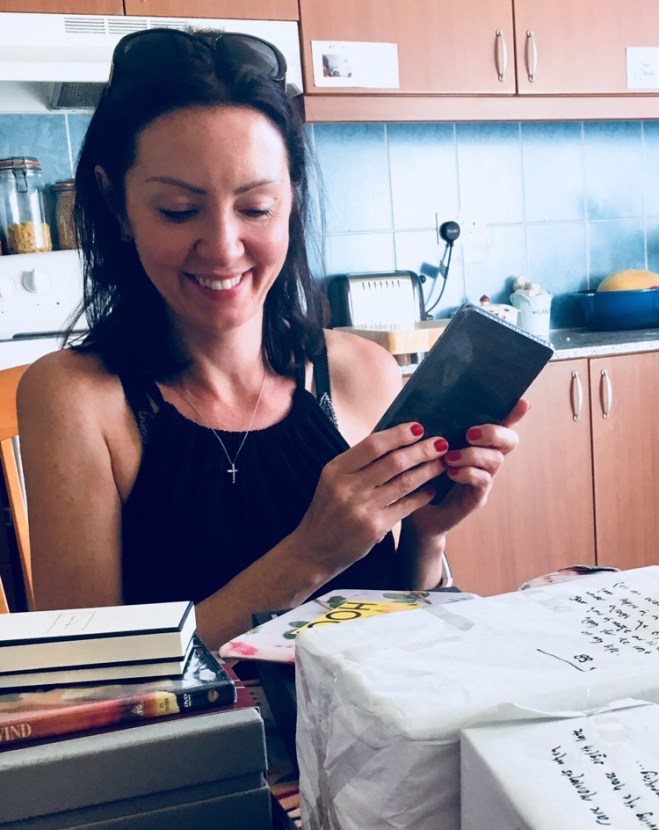
My 2 criteria for my 40th birthday celebrations were seemingly simple ones: no abaya and a glass of champagne. Easy to arrange elsewhere in the world but in our current neck of the woods, this was code for: whisk me away for an exotic weekend!
With a big UK trip coming up, it had to be a small hop somewhere out of the kingdom. Otherwise I might have angled for Barcelona or Venice…
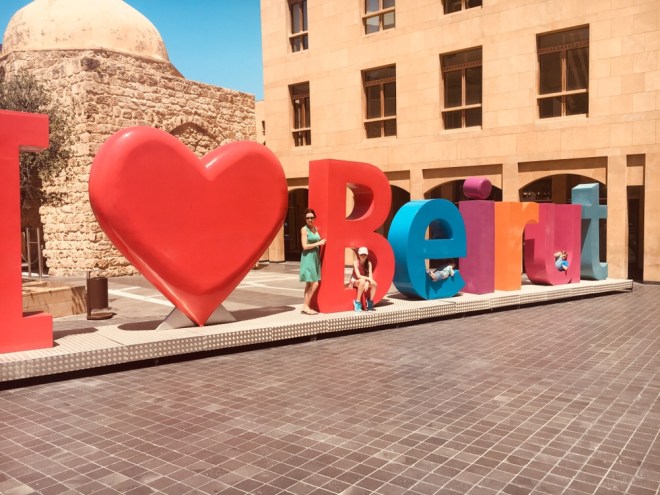
Contrary to common perceptions, Beirut is described by some as the Paris of the Middle East. After watching Nigel Slater wax lyrical about its heavenly offerings, my husband booked a beautiful 1940s apartment in the fashionable Gemmayze district, with a 40th birthday brunch reservation at a chic cafe, and off we set.
Once onboard a plane marked with the words ‘God Bless You’, I peeled off my abaya with newly-painted nails to reveal my new dress and shoes. Mission almost accomplished. Just needed bubbles.
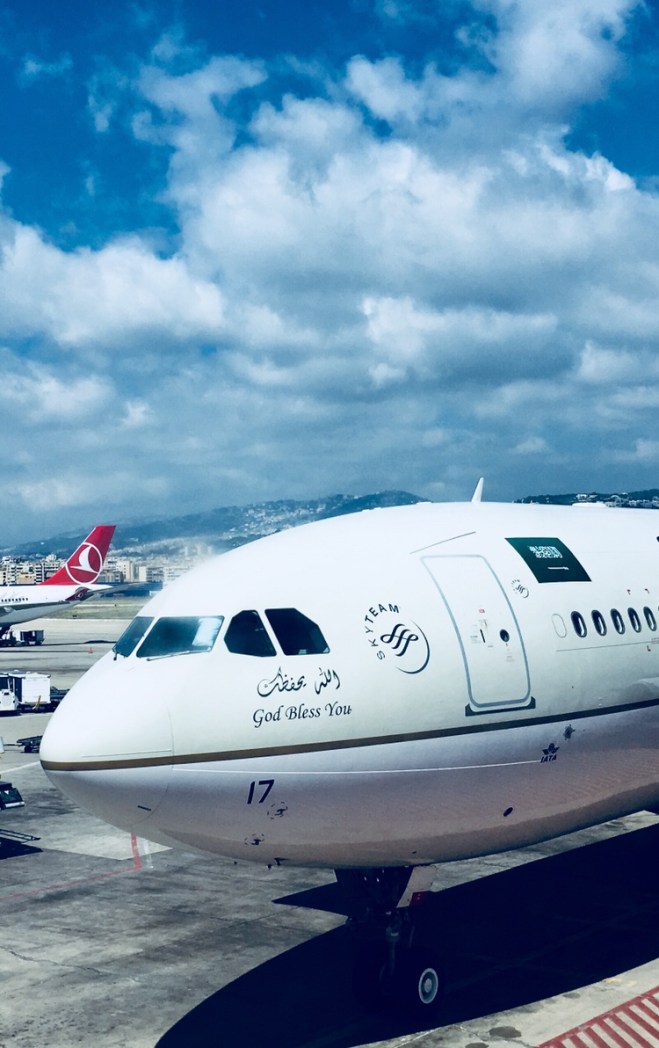
At no point in the planning of this trip did I ask to spend my birthday in hospital. At no point did I envisage climbing back onto this aeroplane, homeward-bound, occasionally adopting the foetal position, having had no champagne, choosing to wear the abaya to keep warm from the post D&V chills. Our carefully-laid plans would encounter foul play…
As we started the descent towards Beirut’s beach-style runway, the plane tilted to one side, as if giving us a preview of the delights below. ‘Look where I’m taking you,’ she whispered.
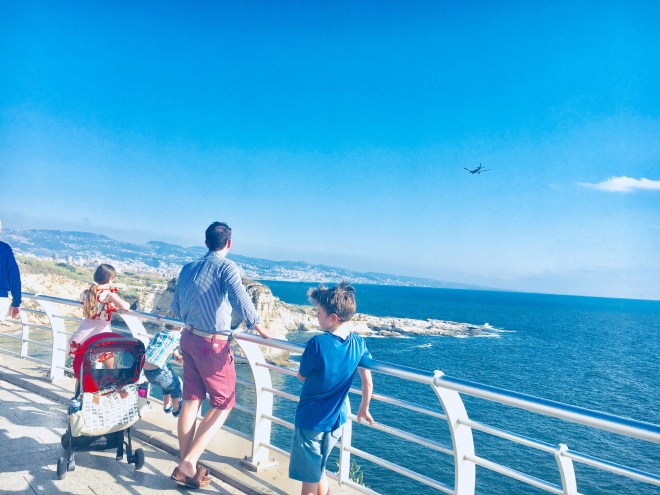
On the taxi ride to the apartment, the driver entertained us with his views on Beirut. ‘I’ve lived in Australia. So boring. This is Beirut. Fun 24/24.’ I’m sure Australia’s not boring but the driver was right about ‘fun 24/24’. The noise on our balcony every night steadily increased until 3 or 4am. Beirutis like to party!
We had 2 glorious days exploring the city and it’s coastline. We donned abayas and entered the Blue Mosque, then walked 50 yards across the Green line that used to divide Muslims and Christians to the Greek Orthodox Cathedral, where we gazed at Jesus and Mary.
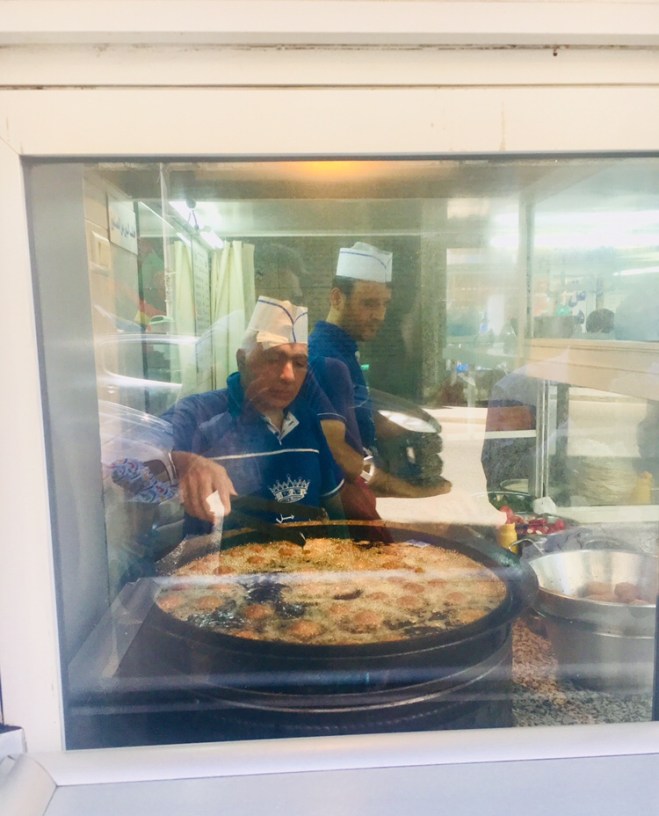
We visited Martyrs’ Square, we passed the cinema that stands astride the Green Line, bearing the scars of war and left as a memorial. We passed the Roman Baths on our search for Beirut’s oldest falafel shop. We hung out with serious shoppers in the revamped, flashy souks. We stood in awe of the history behind the Omari Mosque that started life as a church- a place where Muslims and Christians gather.
We strolled along the Corniche, past Pigeon Rock, at sunset. We took a boat ride into ancient caves that house the world’s oldest stalactite and we lunched in Byblos harbour where the Egyptians and Phoenicians traded papyrus.
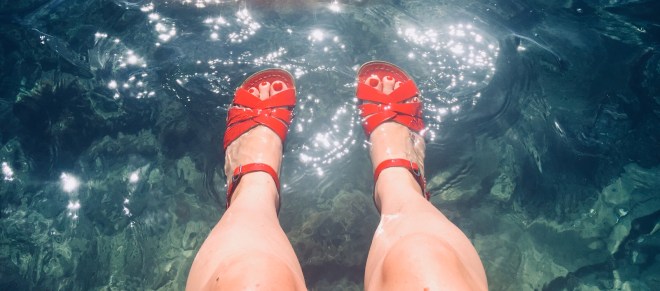
Life was good. I thought I could almost cope with the arrival of the forties into our 1940s apartment that night. But I hadn’t realised she was bringing a guest- the worst tummy bug I’ve ever experienced. As dawn crept though the shutters, I groaned before hurrying off to the bathroom again.
In the morning, my husband didn’t go across the street to ask the baristas to make me a birthday flat white, he didn’t bring me a breakfast tray or the cards and presents sent from family in the UK. They would all be taken back on the plane, unopened.
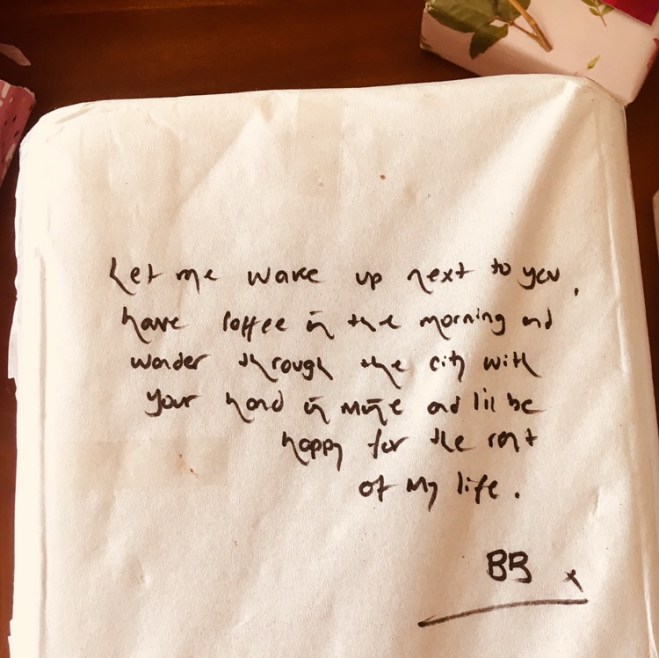
Instead, he tried to run me a bath but there was no water. There was a power cut and the 1940s pump wouldn’t work. He went to ring the apartment owner but discovered he couldn’t because the lack of electricity had knocked out the WIFI and he wasn’t on the Beirut mobile network. I wanted to help but I couldn’t stand.
He eventually sorted the electrics and plumbing and then promptly flooded the bathroom. The 1940s pipes didn’t like baths. Apparently, the apartment owner had never run one. He called the chic cafe and cancelled the birthday brunch and then he rang the travel insurers.
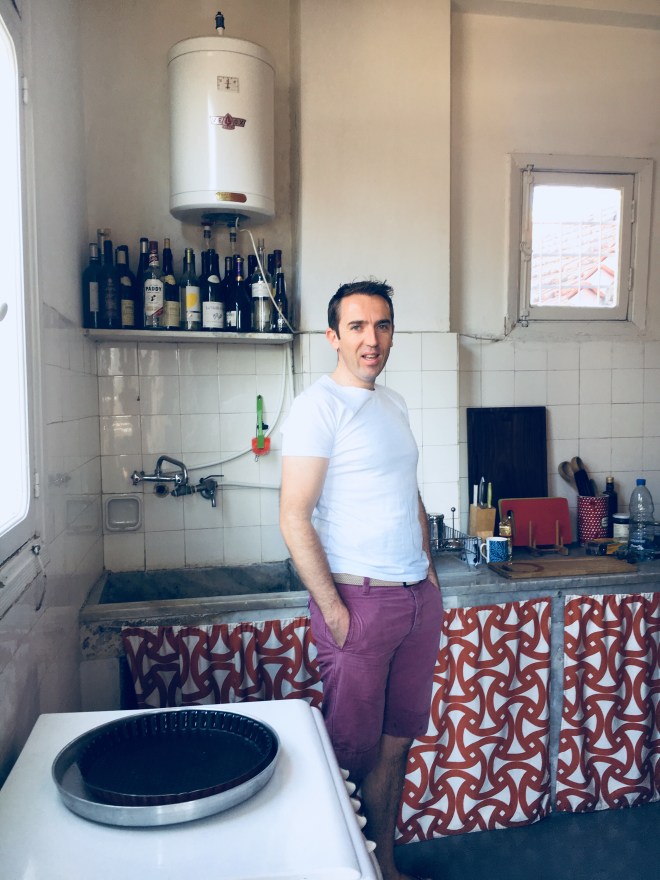
Miraculously, they couldn’t have been kinder. They told him to get me to a doctor if we needed to extend our trip, which was looking inevitable. Miraculously, we discovered there was a hospital run by nuns 200 yards away from the apartment. I left my husband to deal with the flood and our toddler, an unhappy combination but toddler and hospital seemed worse.
At the hospital, no one spoke a word of English and the vestiges of my GCSE French (‘Je voudrais un jambon sandwich’) weren’t going to help anything. But the nun’s only English was more helpful: ‘Bless you, my child,’ she said.
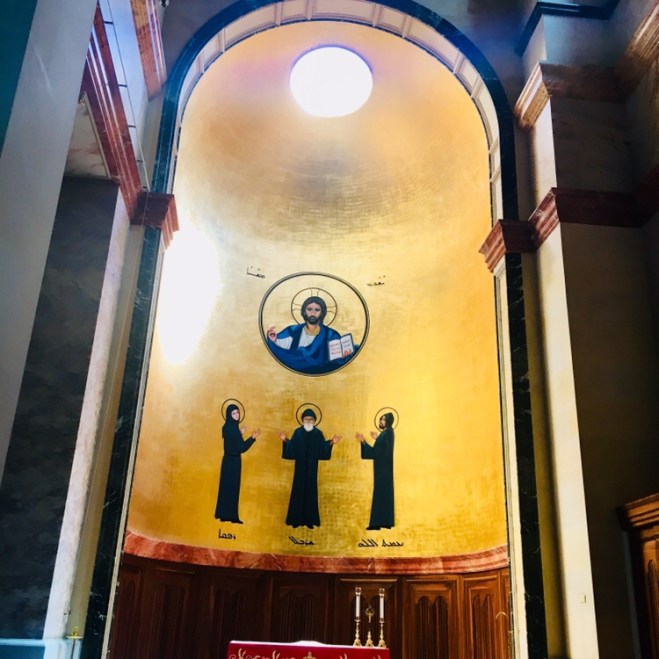
Hooked up to a heart monitor, with my newly-acquired bingo wings in a blood pressure-measuring vice, I was told I needed to pay 115,000 dinar to be treated. I realised I’d forgotten my purse. I had no way of phoning my husband and I couldn’t explain I just wanted a doctor’s note because no one understood me.
Miraculously, an English-speaking doctor appeared by my bedside, wrote the note and told me what to buy at the chemists. He said they wouldn’t record my visit- it was as if it had never happened so there was no charge.
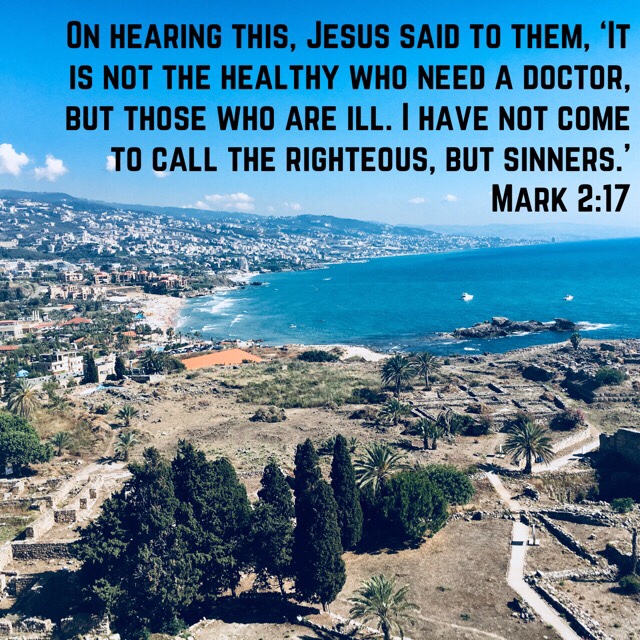
Back in floodsville, my husband explained the owner couldn’t let us have a late check-out as she had new guests arriving so, with nowhere else to go, he and my son dragged our luggage over to the hip coffee house, where we sat for two hours trying to decide what to do.
The next day was a transition day at school, there was my daughter’s dance performance that she and Alexa had spent hours rehearsing, all manner of reasons to get home, not least the call of my own bed. I downed the medicine, deciding to be brave, and embarked on the worst journey of my life.
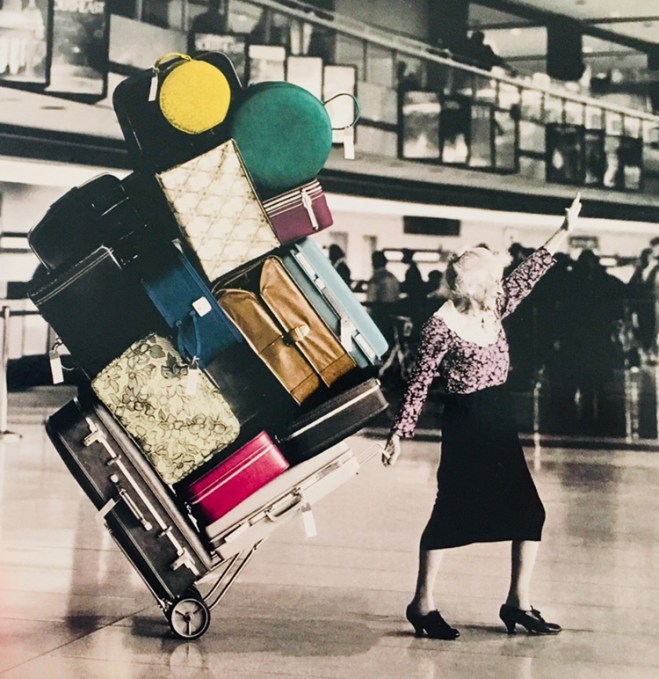
My grandma’s 40th card to me!
A taxi driver collected us and drove us to the airport. There was a cross hanging from his rear-view mirror, swinging from side to side with every nauseating turn. He didn’t understand our request to stop for money so we arrived without the full fare. Miraculously, he waived the missing amount.
At the airport, with a headache set to split my head in two and waves of nausea crashing over me, I was happiest on all fours. That’s how I queued through passport control and security. People looked baffled. Was I praying or dying? My son kept hugging me: ‘I feel so sorry for you. This isn’t a good birthday. This isn’t fair.’ That was the children’s refrain: ‘This isn’t fair.’
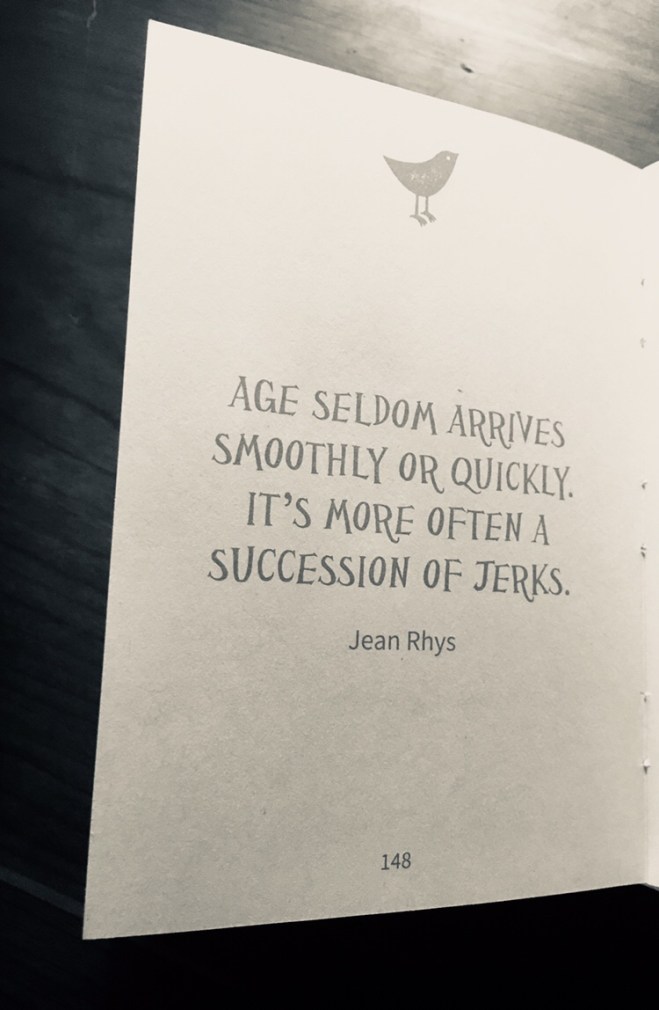
The children prayed for me on and off all day. They silently called ceasefire on all rows and barely squabbled. And I got at least a month’s worth of hugs from them. Even though I didn’t want to be touched, I treasured their concerned cuddles.
The journey went from bad to worse. The air crew verged on hostile, taking exception to my husband’s shorts, the size of his hand luggage, totally impervious to my state. The flight was rammed. I needed to lay my head on something. The staff wouldn’t help. Miraculously, other passengers allowed our children to sit with them to give me a spare seat to rest my head.
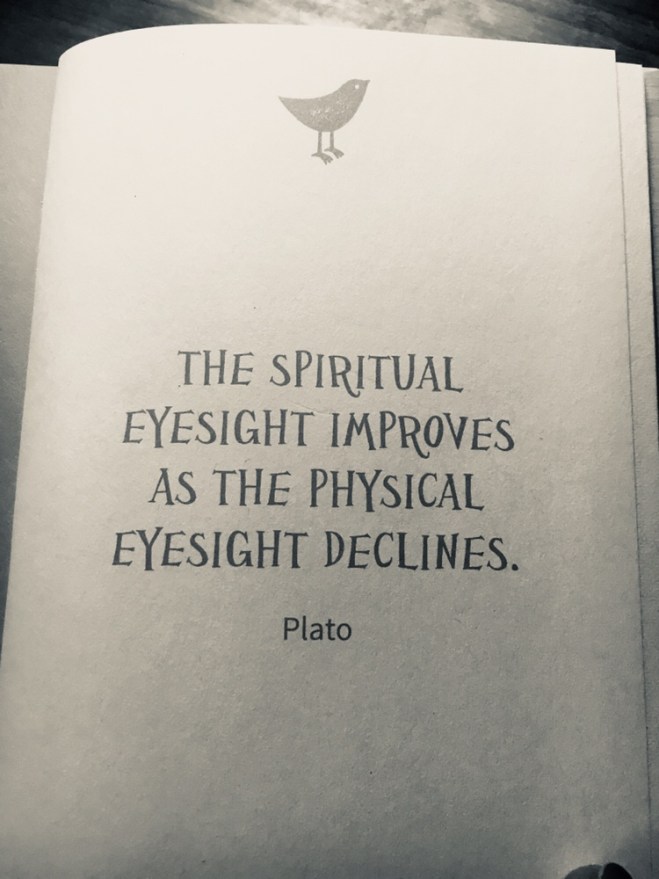
The children’s refrain rang in my head: ‘It isn’t fair.’ That’s so often my attitude in life. I haven’t outgrown that phrase. Bad stuff happens and I think ‘This isn’t fair.’ It’s a common mantra which others may find themselves saying too. We don’t outgrow it easily because the reality is, we encounter injustice all the time.
Maybe I was just too poorly to process what was going on but for once, I didn’t think ‘This isn’t fair.’ I could see God in the nightmare- in the nun’s shred of English that became a blessing, in the doctor’s kindness and understanding, in the cross of the taxi driver who graciously let us off his fare, in the small stretch of seat that meant I could rest my head, and in the passengers who gave it to me.
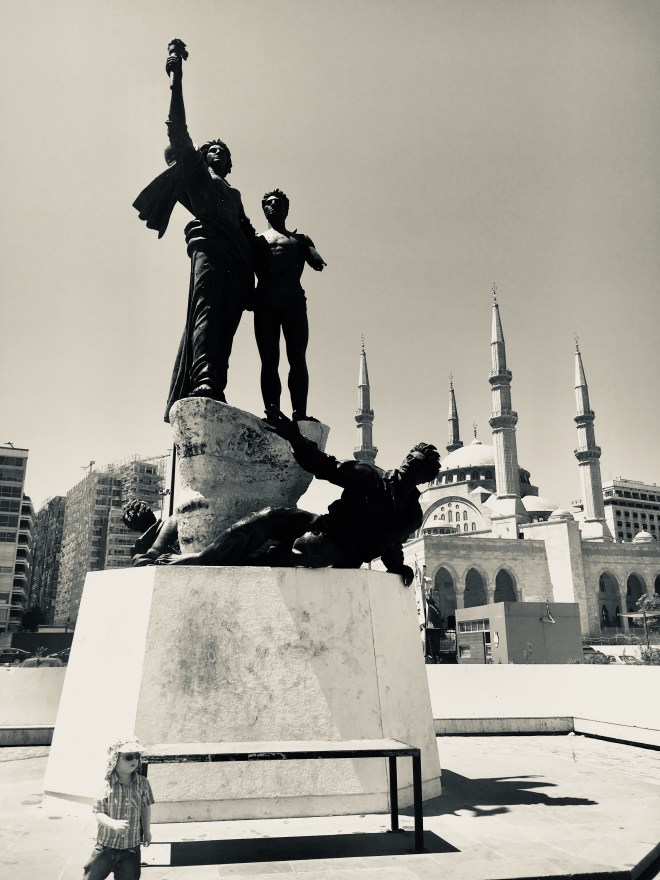
Life’s not fair. It’s deeply unfair. It’s a spiritual battle, where good and evil collide around us daily, in the enormity of the world stage and in the tiny details of our individual lives.
It’s not fair that there are huge camps of refugees living in squalor in the outskirts of Beirut. It’s not fair that their nearby home country has been ravaged by war and death. It’s not fair that beautiful Beirut itself has experienced the horrors of war, repeatedly. It’s not fair that the 24/24 taxi driver lost three of his uncles in its civil war.
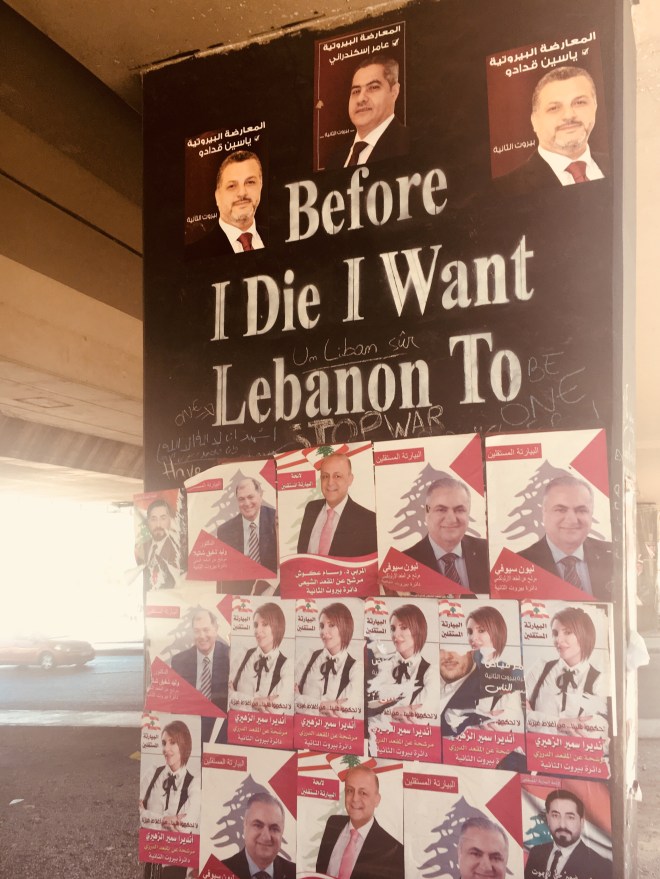
I remember a friend saying to me that the reason grief is so awful is that we were not designed for it. We are not designed to deal with death because it was never part of God’s plan for us.
The reason most of us don’t like significant birthdays like mine is that it’s a reminder of the ageing process and what lies at the end of it. We weren’t designed to age or die. We weren’t designed to live in a world where there is illness and war. We weren’t designed to live in a world where there is unfairness. Many of us will find ourselves saying or thinking something is ‘unfair’ because it offends the God-shaped part of our make-up that desires justice.
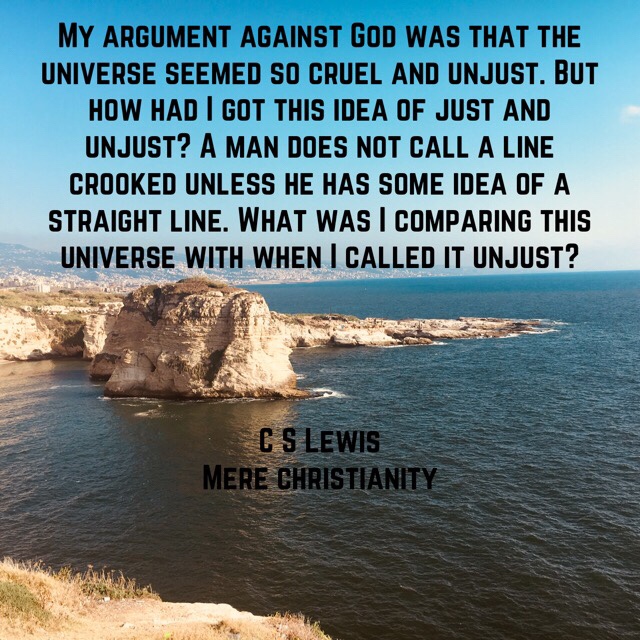
I have another friend who jokingly calls me ‘Karma Katie’! She thinks I attract a disproportionate amount of trouble. I do seem to, probably due to my poor choices more than anything. But I don’t agree with Karma. That idea suggests there is an element of justice in the disasters around us- that someone experiencing bad times now is getting their just desserts for things they did previously.
If we’re going to stick with the Karma idea, then we are all going to meet a bad end because which one of us can claim to have lived perfectly? There will be desserts in store that none of us want.
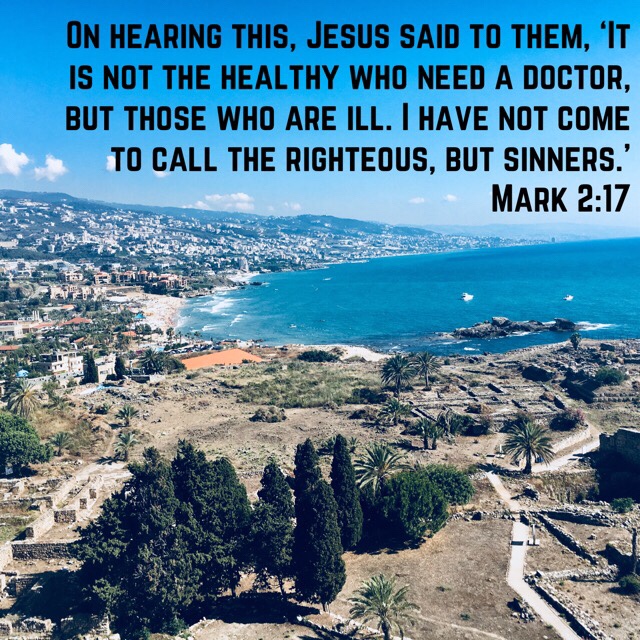
I believe something very different. I believe in the justice that Jesus came to share, which is 180 counter to our human ideas of people being served what they deserve, our tit-for-tat sense of fairness. Jesus’ justice is radical, revolutionary, undeserved and available to us all. But we are told we will have to wait to see it fully realised.
There’s a spiritual war going on around us and we all bear the scars from it, some worse than others. I think we’re all a bit like that cinema on the Green Line in Beirut, broken, full of bullet holes, hopefully still standing but battle-weary.
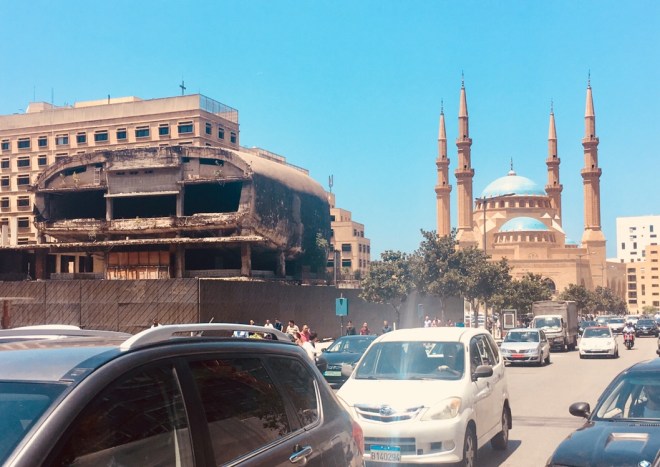
And the reason there’s a war is that humans broke God’s perfect creation, collectively and individually, with imperfect choices. But instead of leaving us alone in the fight, or as war-torn memorials stranded in no-man’s land, God has brokered peace for us. In his ultimate love, he has mended what we broke because he knows we are too broken to mend it ourselves. The best sort of dad.
He sent Jesus into the midst of the battle to die an unfair death, defeating the power death has over humankind. The war still rages. Good collides with evil. We still have to live in this unfair, imperfect world. We still have to die but death no longer has the final say.
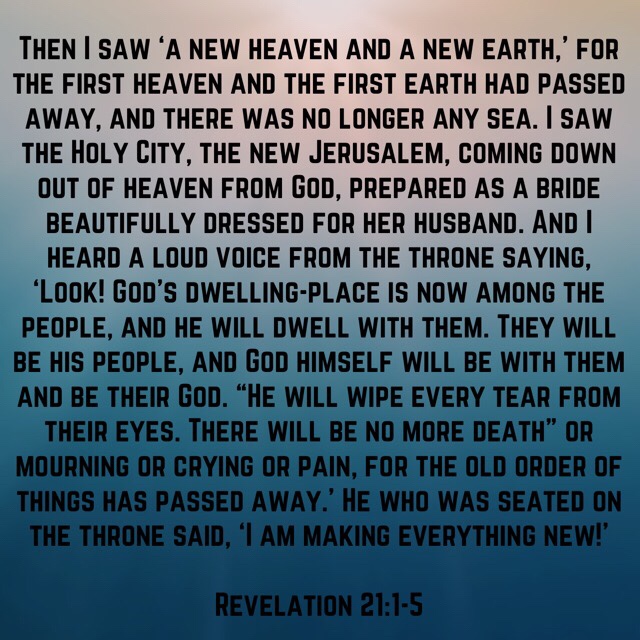
There was a moment on the aeroplane on the way home from Beirut when I felt so ill, I wondered how much worse a person feels before they die. How do people know when they are about to slip away? How did my Grandad know to tell my Grandma he would miss her just before he left us? I don’t think it could have been a judgment based on the degree of his pain. I believe he was given a glimpse of the delights awaiting him. Someone at his side, whispering, ‘Look where I’m taking you.’
There is a future awaiting us with Jesus, if we want it, where love, justice and peace reign. Where we don’t age, where there are no birthdays, no spoilt plans. Where there is an eternal party that doesn’t stop, even at 3am or 4am. Mission 24/24 fun complete. And we are all invited.

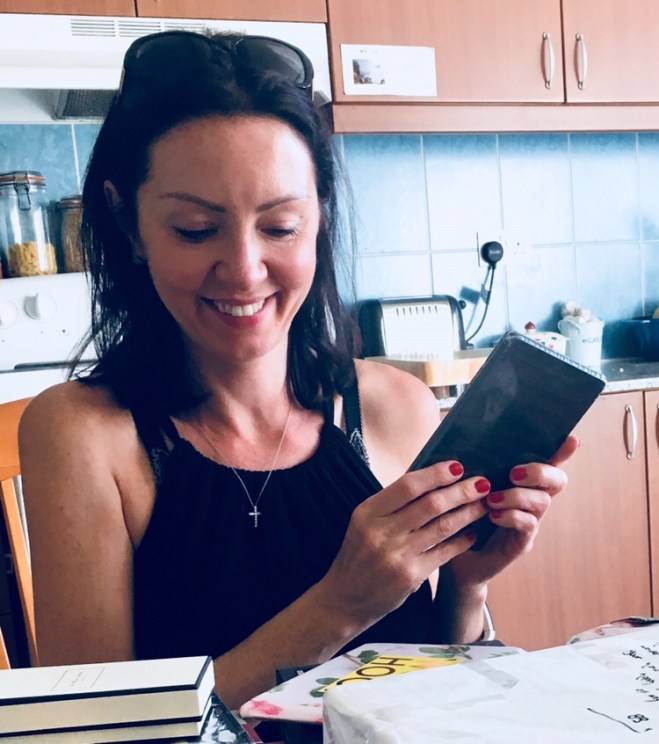
Sorry you were ill. Excellent writing with interesting thought about reason for your granddad’s last words. Looking forward to seeing you soon xxElaine
LikeLike
Thank you, Elaine. Can’t wait to see you! Xx
LikeLike
I found out today that a lady who used to clean for us and look after my children has died of cancer. Her death feels particularly unfair not just because she was young but because the poverty of the country and family she had returned home to meant she didn’t get treated early enough.
I needed your reminder today that death is not part of God’s original plan, and after reading your blog I picked up my copy of Café Theology by Michael Lloyd – the man who first introduced me to a proper doctrine of the fall, and found this wonderful quote: Jesus raises Lazarus without any apparent fear that in so doing He might be opposing God’s will…He knows that suffering has no valid place in God’s world. He is angry with fallenness. He delights in fighting it and reversing it and giving life and wiping away tears.
My friend’s death was unfair, and God sees it that way too. She was however one of his children and today her tears will have been wiped away because she will be with him in paradise.
LikeLike
I am so sorry to hear that, lovely friend. That is truly sad and deeply unfair. I love what you have quoted. Michael Lloyd explains it so well. I have sometimes puzzled over Jesus’ tears at the news of Lazarus’ death when he knew he would give him life but it demonstrates that death and fallenness really do break his heart. Jesus can do for your friend what he did for Lazarus and we can be comforted, like you say, by the fact that he’s wiped away her tears and she is with him. Love and prayers x
LikeLike
Katie,
I have read a number of your blogs, mainly as your inserts in cards at Christmas had humour an pathos in such a beautifully constructed way. Your blogs have taken that and with faith and acute observations have given your writing ‘a life’ that is a joy to read. It cannot be easy to travel to such a different kingdom and get used to all the customs, do’s and don’ts and experience as much as possible whilst balancing the requirements of being a good mum and supportive and loving wife. I applaud your writing for it’s style and hope you develop your ‘gift’ to work towards maybe in time a book. Bless you and all the Kyle’s, we miss you all but meantime we have the “Eaglets’ Wings”.
LikeLike
I am so touched by your generous, encouraging comments. Thanks Philip. That means a lot. Currently struggling with my tummy bug, which has an unexpected sting in its tail- your words have cheered me up no end. Loads of love to you special people x
LikeLike